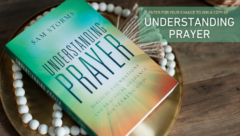I have a particular interest in books, written from a secular perspective, that say the same things Christians have been saying for years. I enjoy finding these little pears of wisdom, these little bits of common grace, that I can only hope will lead people to see and understand the the Bible truly does present the way humans can live best. One of these books is Unprotected, a book dealing with the problems inherent in campus counseling.
In this book, according to the subtitle, “A campus psychiatrist reveals how political correctness in her profession endangers every student.” Because she fears the consequences of her stance, the author has chosen to remain anonymous and is known only as Anonymous, M.D.. She claims that her profession has been overrun to the point that she can no longer do what she feels is best for her patients. She contends that a radical social ideology is to blame for this. “I once assumed campus medicine and psychology had one priority: student well-being. I’m no longer so naive. Radical politics pervades my profession, and common sense has vanished.” In place of common sense is this ideology, this political correctness, which seeks to “destabilize a truth of science and civilization: that the sexes are deeply and essentially different.” In the author’s view, turning a therapy session into an instrument of this agenda corrupts the profession.
In this book she argues as a scientist, not as an adherent to any religion. She argues that, as a doctor, she is responsible for her patient’s total care and should not be forced to stop at anything less.
Through eight chapters, the author attacks eight aspects of the ideology. This doctor has seen how our culture’s attitude toward gender and sexuality is reaping havoc with college students. “Why are students inundated with information about contraception, a healthy diet, sleep hygiene, coping with stress and pressure–but not a word about the havoc that casual sex plays on a young woman’s emotions?” The reason is simple: “To acknowledge the negative consequences of the anything-goes, hooking-up culture would challenge the notion that women are just like men, and undermine the premise of ‘safer sex.’ And in our ultra-secular campuses, no belief comes so close as these to being sacred.” Ideology in this profession is destroying the very lives it is sworn to protect.
She moves on to discuss the shortcomings of “safer sex.” The discipline of reproductive health, she says, has been permeated by an ideology promoting experimentation and permissiveness. Instead of aiming to prevent disease, the goal is now to reduce risk (hence “safer sex” rather than the less subjective “safe sex”). Women are encouraged to reduce their risk, but still countless numbers end up carrying diseases that may well last a lifetime.
The author also discusses religion, though she does so in a generic way and from a secular perspective. She believes that religion is good for physical and mental health and thus promotes religion–any religion. Of course her profession scoffs at religion (and especially Christian beliefs). Further topics include sexually transmitted diseases, the distortions inherent in what people are taught about AIDS (primarily that it is an equal opportunity disease that is as likely to strike heterosexual women as homosexual men), the idea that abortion has no negative consequences, either physically or emotionally, and the false assumption that women can become pregnant as easily in their forties as they can while they are younger.
The conclusion? “We must recognize,” says the author, “that campus counseling (in fact, all of mental health) as it now stands has been hijacked by repressive, radical ideologies. Open discussion is suppressed. Those who dissent are intimidated and silenced. Ideological diversity is nonexistent.”
I appreciated that this author is willing to acknowledge the great responsibility that comes with her job. The things she says, the choices she makes, may have a lifelong impact on her patients. And yet I was saddened to see that, despite her open-mindedness in some areas, she still has so little to offer in others. She still cannot point people to the place where they can find ultimate healing and where they can find an ideology that is consistent and logical and grounded in objective truth. Still, I am glad that she, and few others like her, are seeking to provide guidance and counseling that goes against the grain, that goes against the evil ideology so prevalent in her profession and in our culture. This is an interesting book, and one that provides a sobering glimpse into the mental health profession. I’d recommend it for those with an interest in the subject matter.










